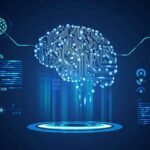AI for Marine Ecology: AI technologies for studying marine ecosystems and conservation efforts.
Marine ecosystems are critical to the health of our planet, providing essential goods and services such as food production, climate regulation, and carbon sequestration. However, marine ecosystems are under threat from climate change, pollution, habitat destruction, and overfishing. To protect and conserve these vital resources, researchers and scientists are turning to AI technologies to analyze and study marine ecosystems.
How AI is used in Marine Ecology?
AI technologies can be used in a variety of ways to study marine ecosystems, including:
Identifying marine species: AI algorithms can be trained to identify species of marine animals and plants, facilitating the study of biodiversity and population dynamics.
Analyzing marine sounds: AI can be used to analyze underwater sounds such as whale calls and fish vocalizations, providing insights into the behavior and distribution of marine species.
Monitoring ocean health: AI-powered sensors can provide real-time data on ocean temperatures, acidity levels, and other environmental factors that affect marine ecosystems.
Detecting illegal fishing: AI algorithms can be used to analyze satellite data and predict illegal fishing activities in protected areas, helping to enforce marine conservation laws.
Predicting the impact of climate change: AI can be used to analyze climate models and predict how changes in ocean conditions will affect marine ecosystems in the future.
Benefits of AI in Marine Ecology:
Using AI technologies in marine ecology can provide several benefits, including:
Improved efficiency: AI algorithms can analyze vast amounts of data quickly and accurately, providing researchers with insights that would be difficult or impossible to obtain through manual analysis.
Enhanced conservation efforts: By providing real-time data on marine ecosystems, AI technologies can help conservationists target their efforts more effectively, protecting marine species that are most at risk.
Better decision-making: AI-powered models can help policymakers make more informed decisions about marine conservation, based on accurate and up-to-date information.
Increased public awareness: By facilitating the study of marine ecosystems, AI technologies can help raise public awareness about the importance of ocean conservation.
Challenges of AI in Marine Ecology
Despite the many benefits of using AI technologies in marine ecology, there are also some challenges to consider, including:
Data availability: The use of AI in marine ecology requires access to vast amounts of data, which may not always be available or accessible.
Limited expertise: Developing and using AI algorithms requires specialized expertise, which may be limited within the marine ecology community.
Ethical considerations: The use of AI in marine ecology raises ethical considerations, such as data privacy and bias in model development.


































